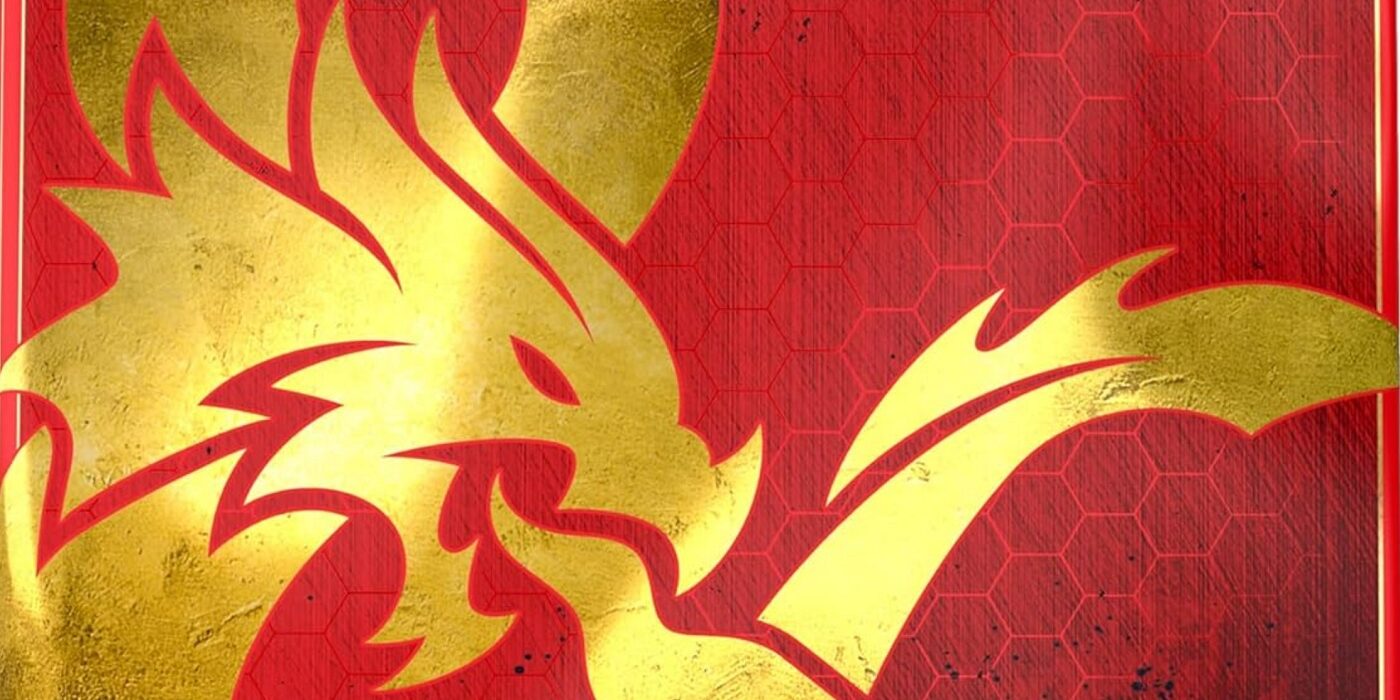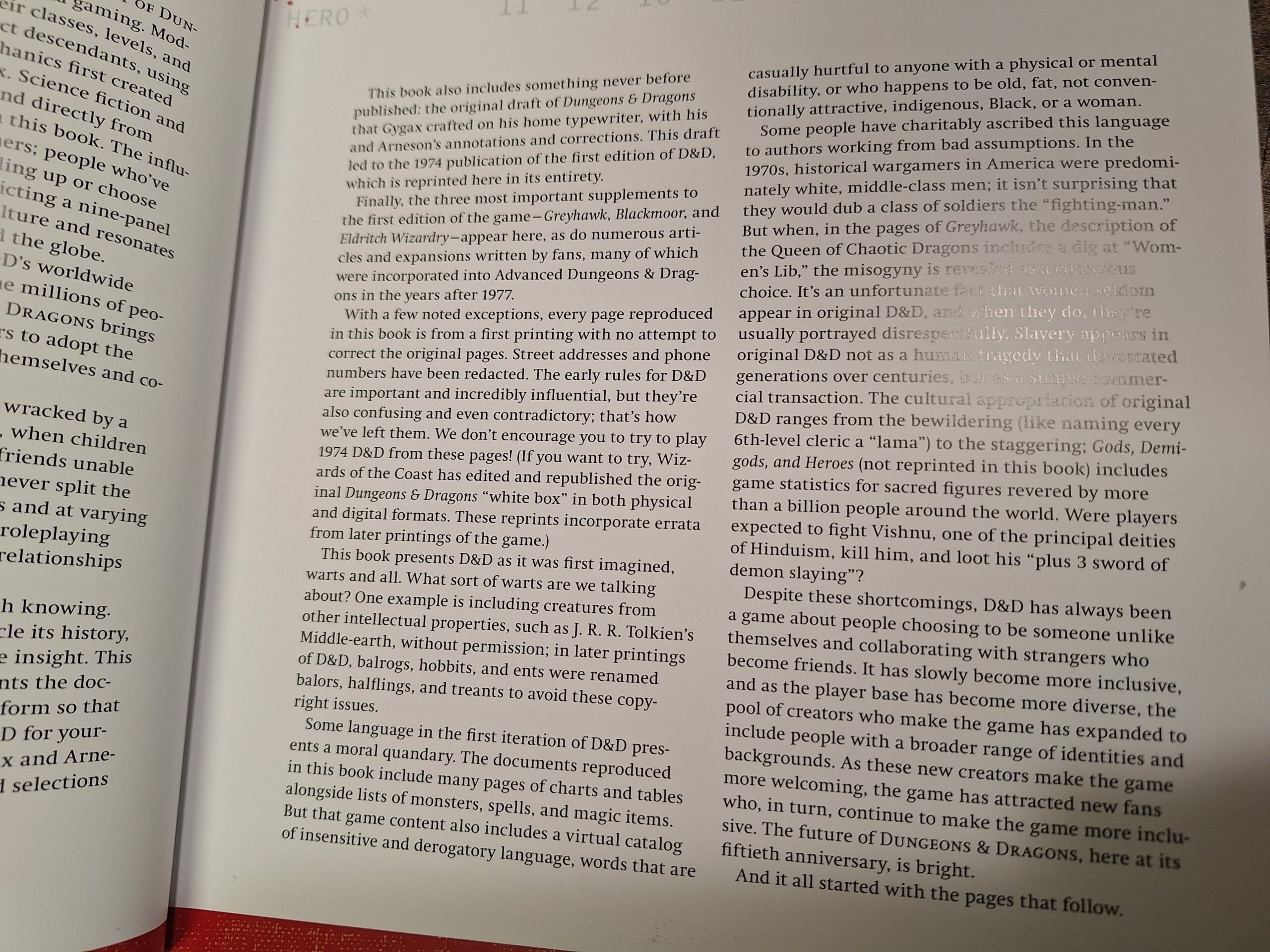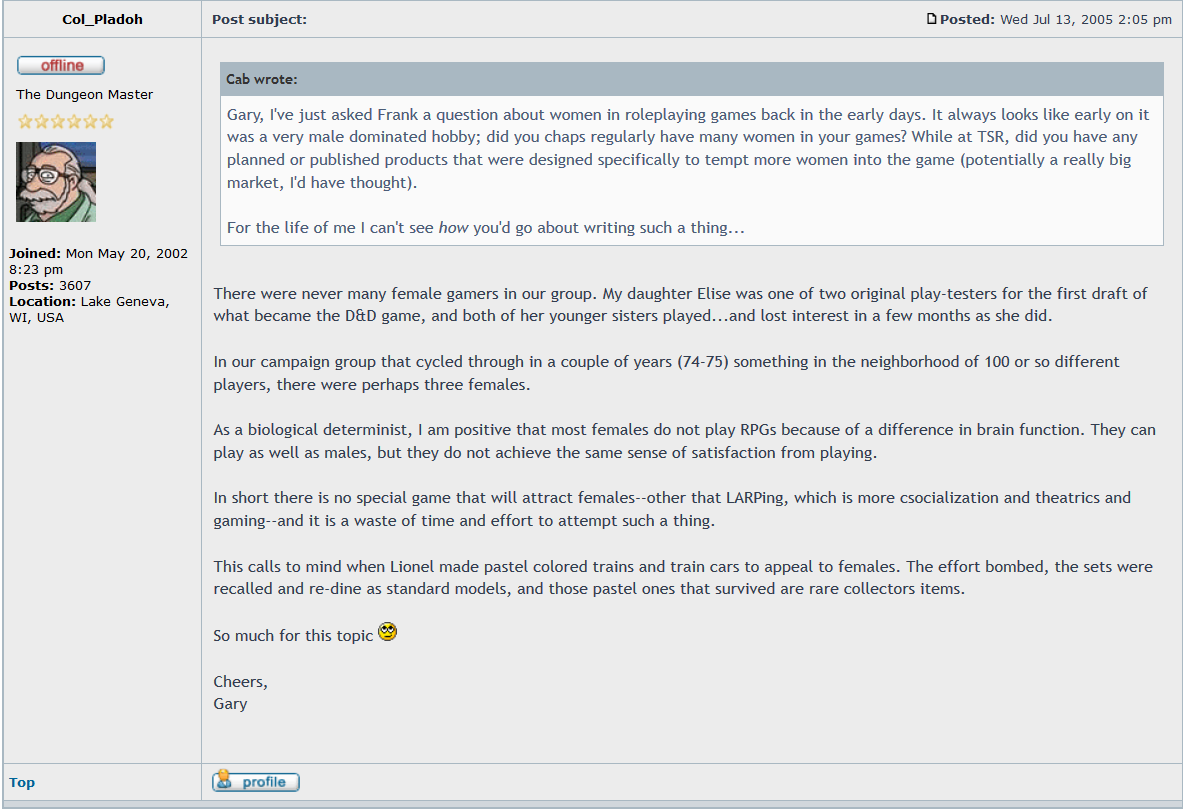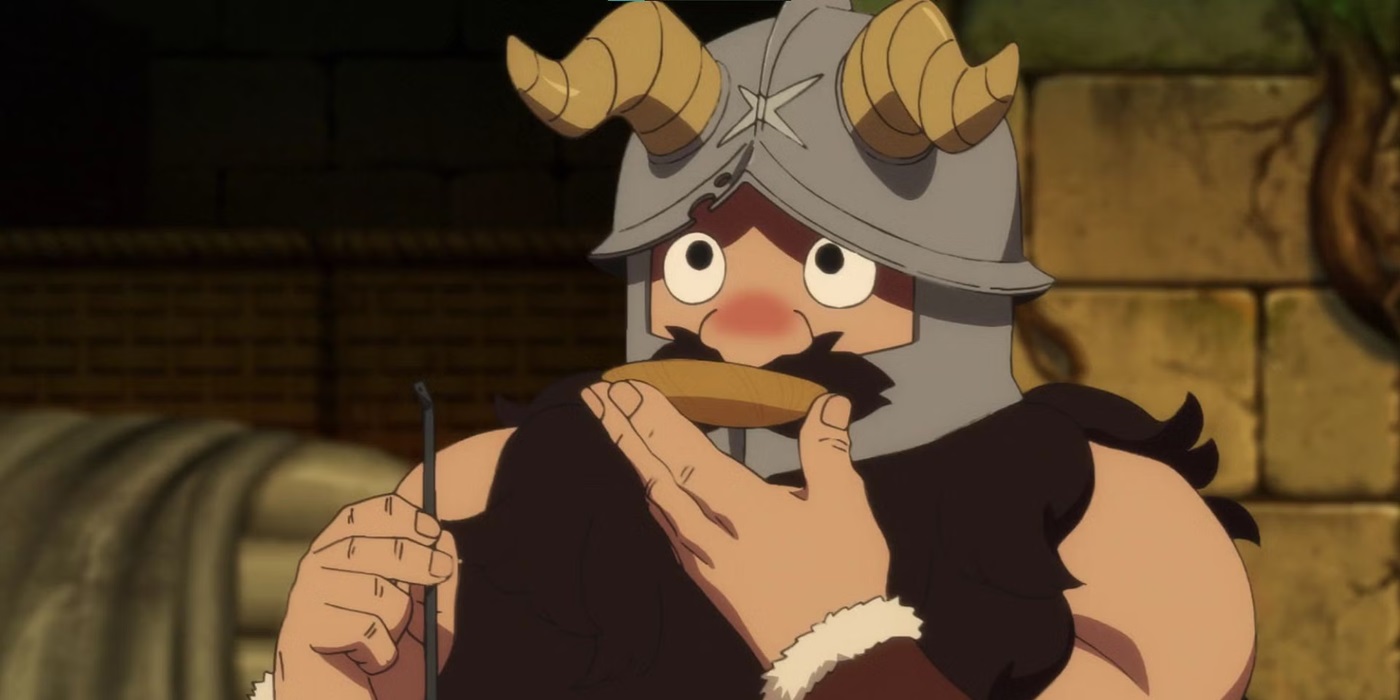D&D History Book Mentions Sexism and the Internet Has Big Feelings About It


In The Making of Original D&D, historians Jon Peterson and Jason Tondro mention that D&D was maybe sexist. Another historian brings receipts.
Another fine day on the internet, I see. D&D has been trending in various social media circles over the past couple of days because, as it turns out, facts don’t seem to care about anyone’s feelings. In a nutshell, the new “D&D history book”, fittingly titled The Making of Original Dungeons & Dragons 1970-1977, has drawn ire from all sorts of corners of the internet. It has done so by committing a cardinal sin: mentioning that something from the past might be less than perfect.
In a nutshell: D&D historians (I know, what a world we live in!) Jon Peterson and Jason Tondro present a never-before-seen original draft of D&D crafted on Gary Gygax’ home typewriter, with both Gygax and Arneson’s annotations and corrections. But in the preface, they point out that hey, some of the language created in the glory days of 1974 is presented “warts and all”.
This includes creatures lifted without permission from other intellectual properties, like Hobbits, Balrogs, and Ents from Middle-Earth, as well as some of the language being regarded as “insensitive and derogatory,” or pointing out that the game has a lot of sexist language—presumably because its creator was kind of a misogynist.
Naturally, the internet took this very well.
Just kidding. To say there was “push back” is like saying “tech bros only occasionally ‘invent’ trains and buses“. So much so that yet another D&D historian, Ben Riggs, made a lengthy post explaining that it’s important to talk about sexism in D&D.
D&D Historian Says Talking About Gygax’ Sexism is Important
Ben Riggs, author of the D&D history book Slaying the Dragon, brought receipts. He also explained why talking about Gary Gygax’s sexism is “key to preserving his legacy.”
Of course, being exigent to the moment at hand, it happened in just about the worst place on the internet these days. The Twitter thread starts with a post that reads: “D&D Co-Creator Gary Gygax was Sexist. Talking About it is Key to Preserving his Legacy.” And Riggs starts by pointing out that Peterson and Tondro use WotC’s disclaimer from “legacy content”
The internet has been rending its clothes and gnashing its teeth over the introduction to an instant classic of TTRPG history, The Making of Original D&D 1970-1977. Published by Wizards of the Coast, it details the earliest days of D&D’s creation using amazing primary source materials.
Why then has the response been outrage from various corners of the internet? Well, authors Jon Peterson and Jason Tondro mention that early D&D made light of slavery, disparaged women, and gave Hindu deities hit points. They also repeated Wizard’s disclaimer for legacy content, which states: “these depictions were wrong then and are wrong today. This content is presented as it was originally created, because to do otherwise would be the same as claiming these prejudices never existed.”
Advertisement
Riggs goes on to point out that Peterson and Tondro aren’t just throwing words around wildly. They cite misogyny in the original Greyhawk expansion, using some fairly tame examples, including a dig against “women’s lib” when talking about Tiamat:
And while many people will say “it was a different time, then” as Riggs points out, people criticized Gygax back then as well, with Riggs pulling out a response that Gygax wrote in EUROPA, a European fanzine:
I have been accused of being a nasty old sexist-male-Chauvinist-pig, for the wording in D&D isn’t what it should be. There should be more emphasis on the female role, more non-gendered names, and so forth. I thought perhaps these folks were right and considered adding women in the ‘Raping and Pillaging[‘] section, in the ‘Whores and Tavern Wenches’ chapter, the special magical part dealing with ‘Hags and Crones’, and thought of perhaps adding an appendix on ‘Medieval Harems, Slaver Girls, and Going Viking’. Damn right I am sexist. It doesn’t matter to me if women get paid as much as men, get jobs traditionally male, and shower in the men’s locker room. They can jolly well stay away from wargaming in droves for all I care.”
Gary Gygax in EUROPA Magazine – 1975
And lest you think, “Oh well, that was Gygax in 1975,” here’s what Gary Gygax had to say about women in gaming in 2005:
Never mind that at his own company, several influential women helped make the game what it is.
So, you know. Peterson and Tondro aren’t pulling the idea from nowhere. But why, then, does Riggs say it’s important to acknowledge the warts, and doing otherwise would be “directly harming the legacies of Gygax, Arneson, Kuntz, and the entire first generation of genius game designers” responsible for D&D?
Riggs draws attention to the monumental wave of new players discovering D&D for the first time. There’s no denying that Gygax and Arneson and the others created something special. The fact that we’re celebrating 50 years of D&D shows just how much the game resonates with everyone, regardless of gender or sexuality or other identity.
As Riggs says, “Talking about [the misogyny and other potentially offensive things in early D&D] welcomes the entire human family into the hobby,” and that’s what propels us into the next 50 years of D&D.
Because no one, certainly not Peterson and Tondro, is saying that liking D&D, warts and all, makes you a bad person. Because there’s no prize for passing the purity test here. Pobody, in fact, is nerfect. People are flawed, hands down. If we insisted only on liking stuff that was made by perfect beacons of goodness, nobody could like anything. But there’s a difference between saying, “Yeah, this thing I like is flawed,” and “pretending there’s nothing wrong ever.” The latter means you’ll never grow or move forward. On the other hand, admitting the flaws lets you start moving beyond them. And that makes all the difference.
If we didn’t love D&D, none of this would matter as much. But it’s because people love it so much, they want better for it.
Pretending that none of the problematic language is there keeps you from growing. Sunlight is the best disinfectant, as the saying goes. And in the sunlight, we all can grow.
Good luck in the comment section, if you made it this far.






